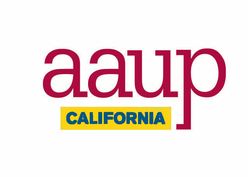This special issue of Academe is focused on academic libraries and librarians in higher education. Guest edited by Danya Leebaw, director of the social sciences department at the University of Minnesota Libraries, the new issue stresses the need for solidarity between "traditional faculty" and academic librarians. Articles examine such topics as threats to freedom of expression in the library, the importance of critical information literacy, collective bargaining for librarians, and how libraries might serve as an institutional model for educational innovation.
You can make a difference on your campus by joining the AAUPand getting involved with an existing chapter or starting a new one. AAUP members have access to full-issue PDFs of Academe, can opt to receive the magazine by mail, and enjoy a range of other benefits.
If you are interested in submitting an article to the next guest-edited issue of Academe, please see the call for proposals for our planned issue on “The Higher Ed Data Juggernaut.”


 RSS Feed
RSS Feed